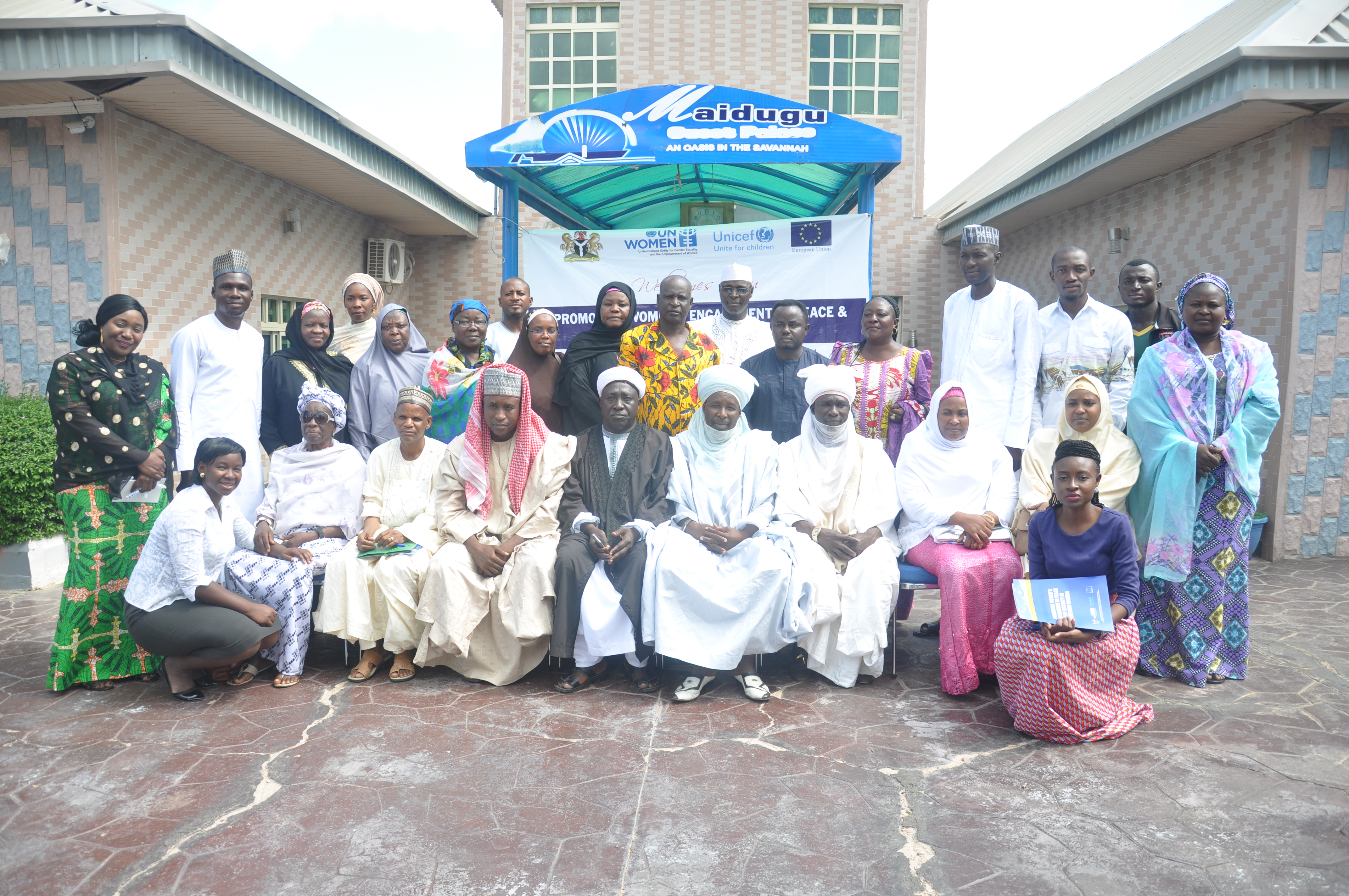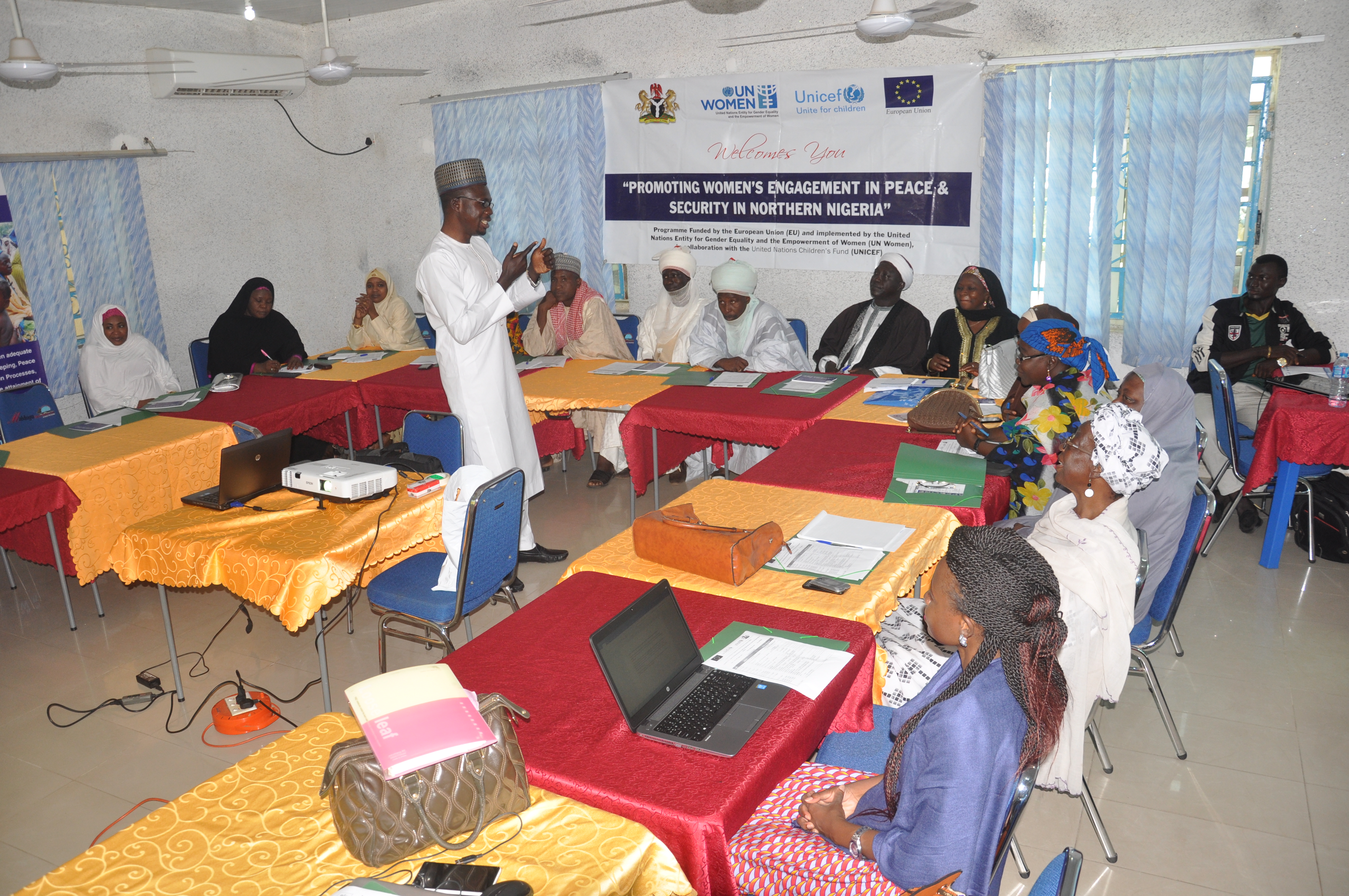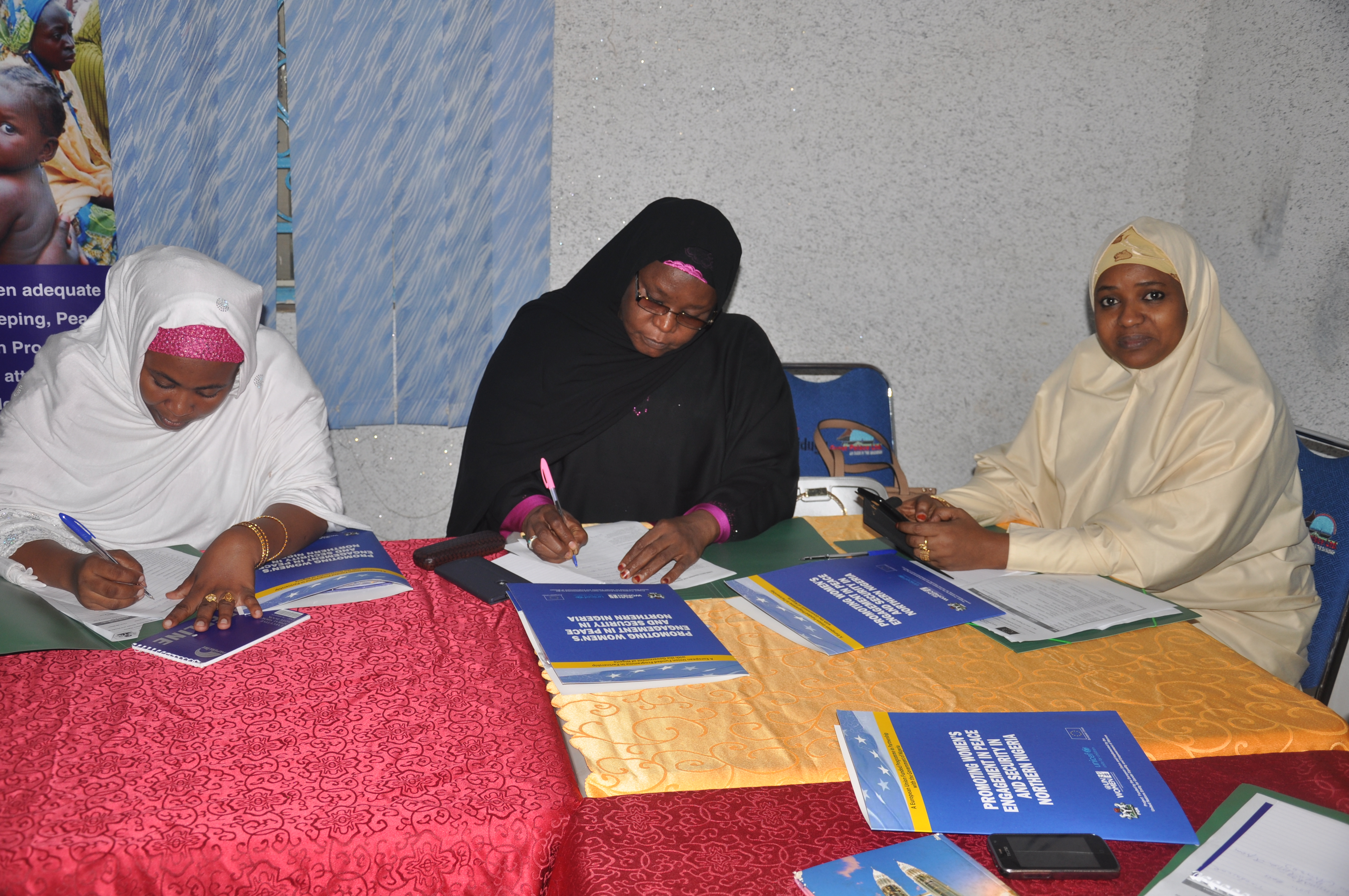Capacity building workshop on Gender, Peace and other related issues conducted in Gombe State, Nigeria
Date:
Maitama, Abuja: 6 September, 2016 - A three-day capacity building workshop on Gender and related issues was recently organized by the Gombe State Ministry of Women Affairs and Social Welfare in collaboration with UN Women. The event took place on 16th to 19th August, 2016 at the Maidugu Hotel, Gombe State. This was conducted as part of the activities under the European Union funded programme ‘Promoting Women’s Engagement in Peace and Security in Northern Nigeria’ implemented by UN Women, in collaboration with the Federal and State Ministries of Women Affairs and Social Development, and UNICEF. A total of thirty-three participants were drawn from different sectors. These include traditional rulers, lead women mentors, members of the State Ministry of Women Affairs and Social Welfare, representatives of Christian Association of Nigeria (CAN), Women Wing Christian Association of Nigeria (WOWICAN), Federation of Muslim Women’s Associations in Nigeria (FOMWAN), Muslim Lawyers Association of Nigeria (MULAN), the Office of the Wife of the Gombe State Governor, the Gombe State Ministry of Justice and the media. The capacity building workshop focused on strategic advocacy, gender-based violence and the Gender and Equal Opportunities Bill in Nigeria.
At the workshop, Dr Titus Orngu, Gender Technical Advisor, UN Women presented an overview of the Women, Peace and Security Programme, highlighting that women should be involved in peace building processes because women and children are the most affected when there is conflict. In addition to this, women have an enormous potential towards peace building and conflict resolution. He also mentioned that volatile security situation, inaccessible areas, and high demands/needs by IDPs are some of the key challenges of the programme.
The Lead facilitator, a lawyer and gender advocate, Mr Akin Omoware gave an expository presentation on discrimination and related terms. He stated that discrimination is not peculiar to Africa or Nigeria alone; it occurs in other parts of the world. He emphasized that ‘’having different identities is not the problem, treating people based on those differences is where the problem lies.’’
The co-facilitator, Kaneng Rwang-Pam discussed the topic ‘Understanding gender and gender-related terms’. She emphasized that perceptions of gender are deeply rooted, they vary widely both within and between cultures, and change over time.
The workshop also featured interactive and technical sessions in which participants were divided into groups. Some of the outcomes of the group work were: Stakeholders mapping and analysis where key officers and their involvement were identified; and role playing of the legislative process to understand how to strategize better.
There was an overview of Gender and Equal Opportunities Bill (GEO Bill) in Nigeria and participants were also divided into 4 subcommittees: Advocacy, Media, Legal and Mobilization. The draft GEO Bill for Gombe State was shared amongst the subcommittees for review, and observations and changes were made.
The legal subcommittee resolved to have a subsequent meeting to develop a workable draft GEO Bill for Gombe state. Some of the strategies to be employed while carrying out the activities in the work plans are: engagement of key stakeholders, identification and promotion of supporters of the bill, training, sensitization and high level advocacy. These processes are however expected to actualize the passage of the GEO Bill into law in Gombe State.
The Northern Nigeria Women, Peace and Security programme ‘Promoting Women’s Engagement in Peace and Security in Northern Nigeria’ is funded by the European Union (EU), and implemented by UN Women, in collaboration with United Nations Children’s Emergency Fund (UNICEF) and the Government of Nigeria.


